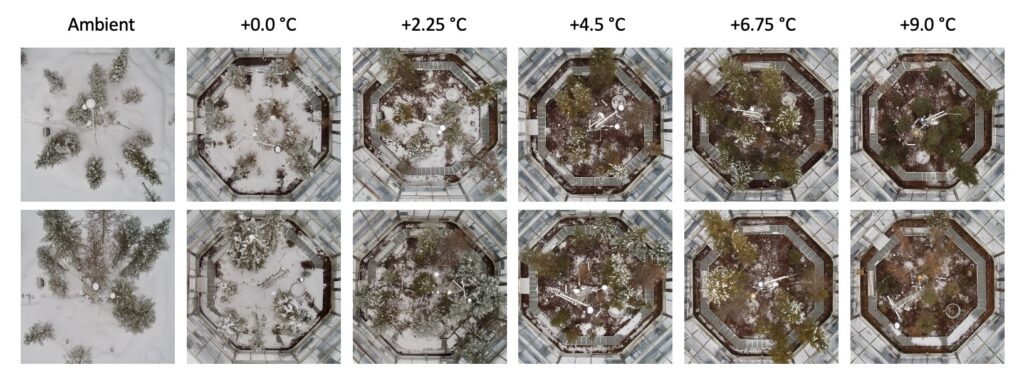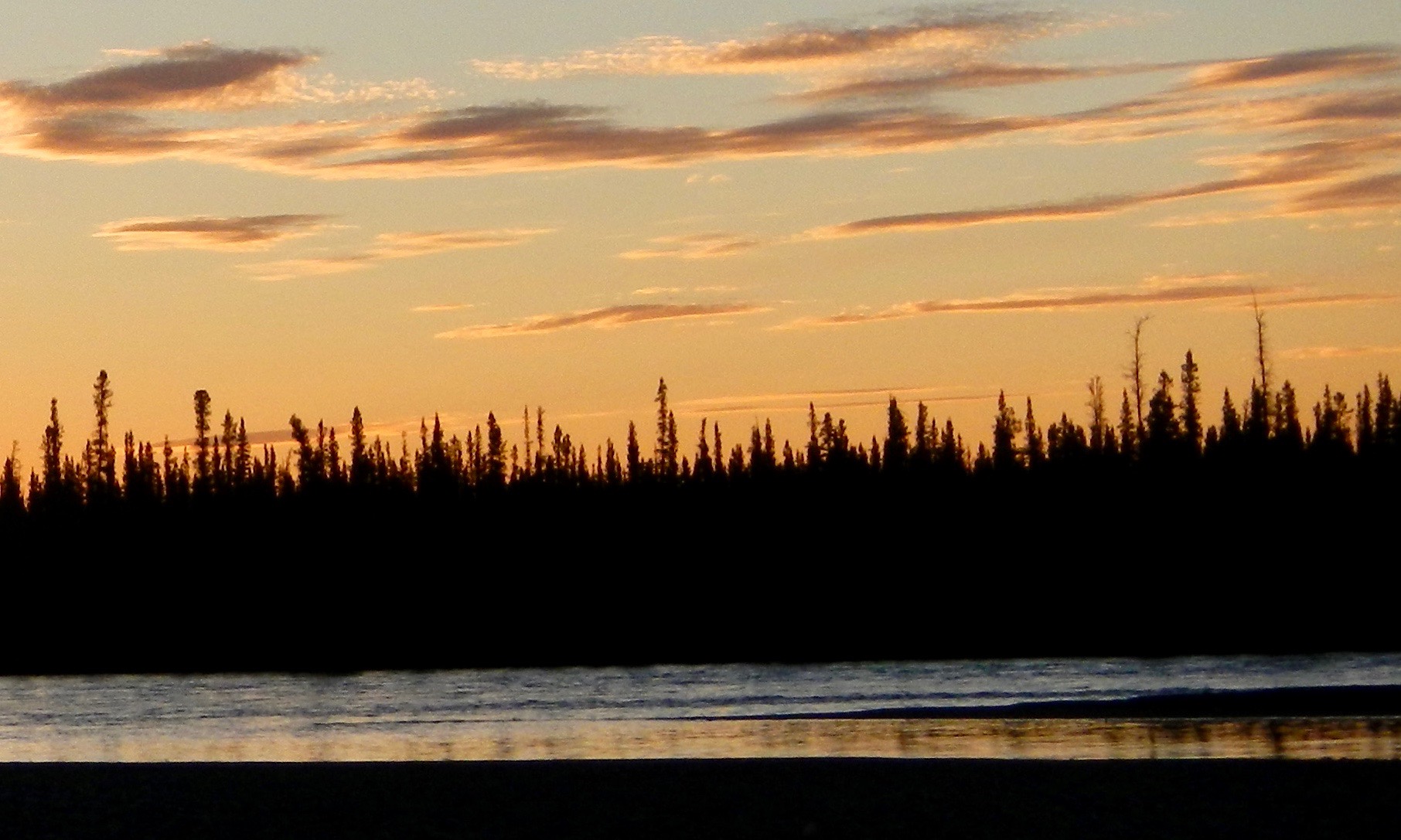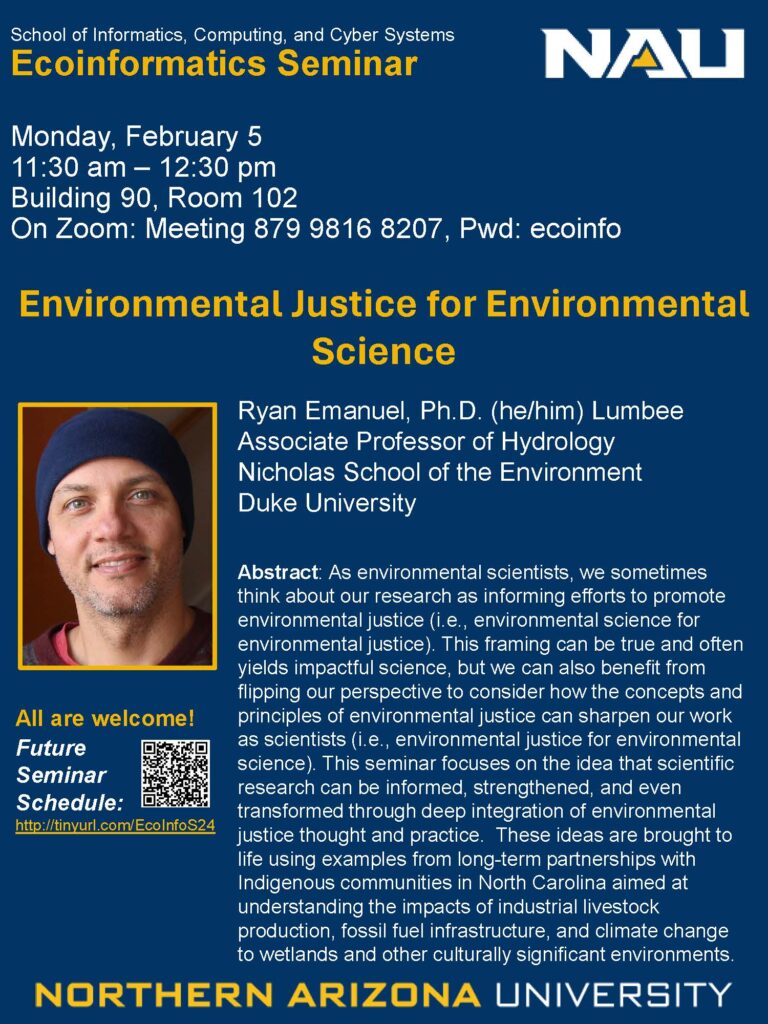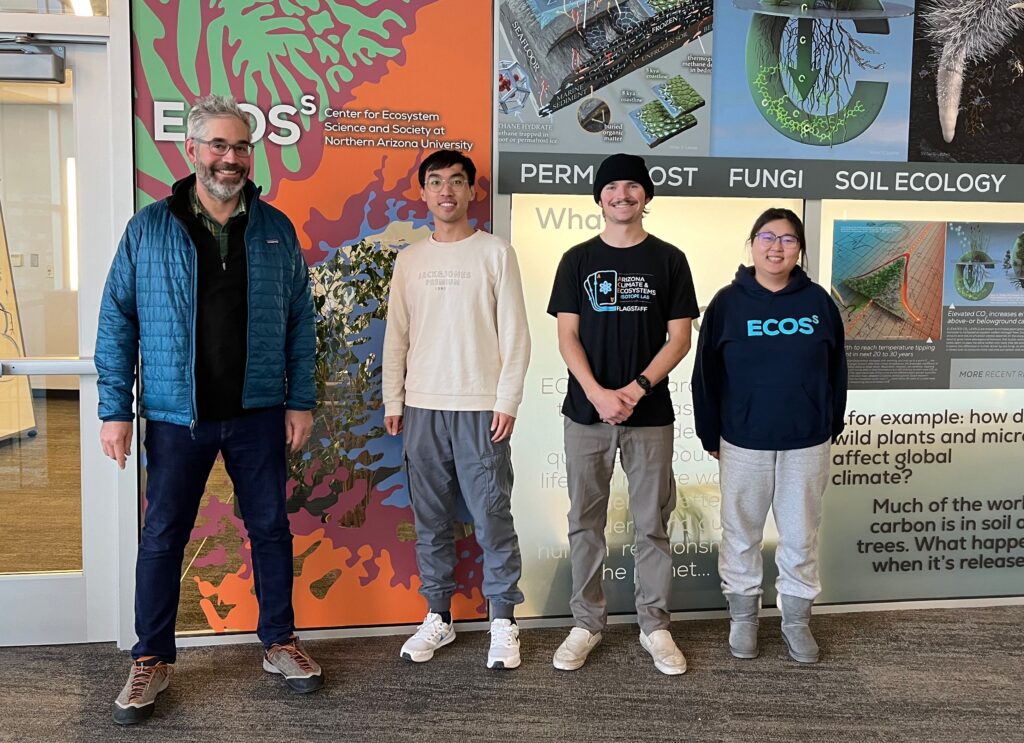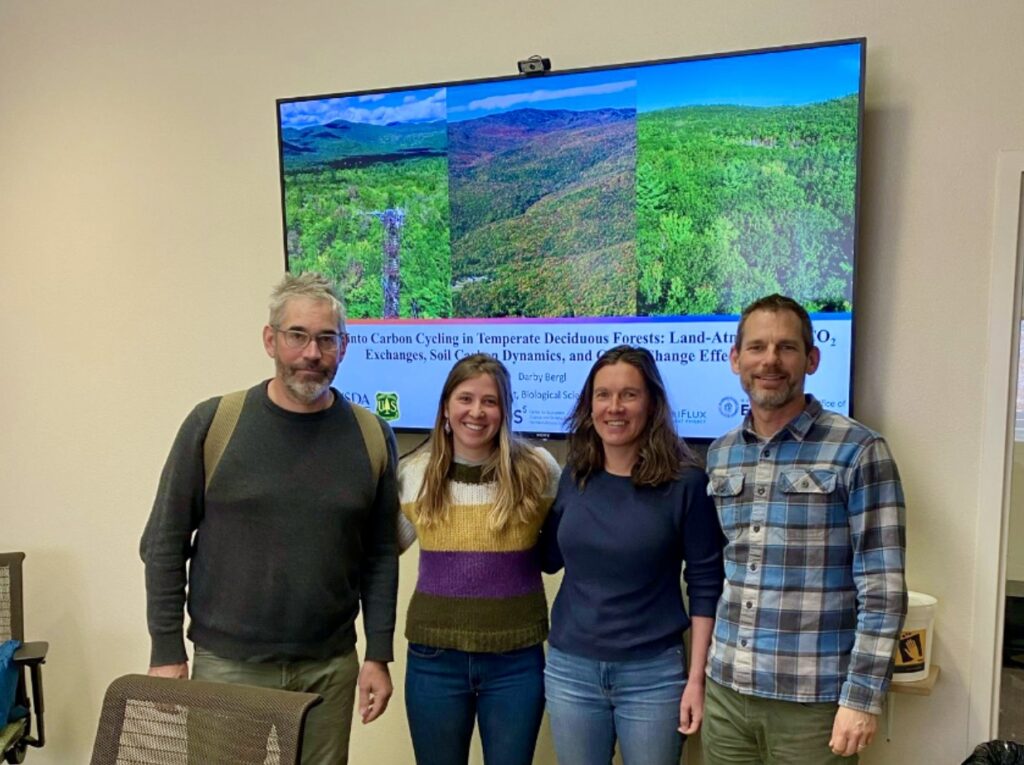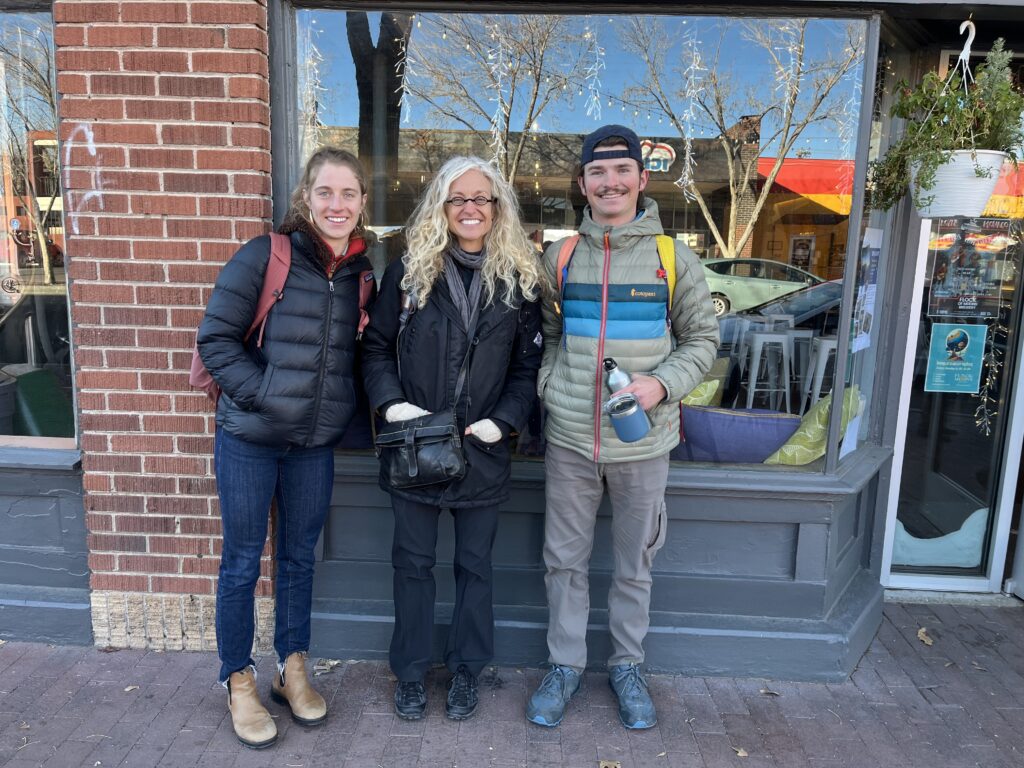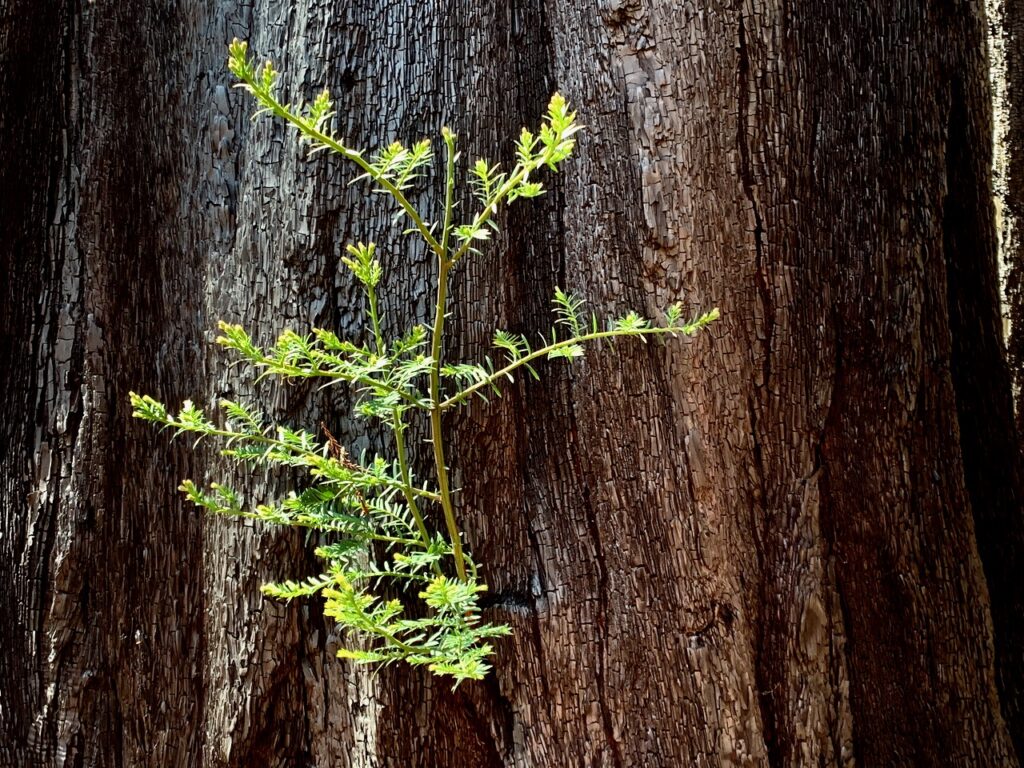Andrew’s paper, “Experimental Whole-Ecosystem Warming Enables Novel Estimation of Snow Cover and Depth Sensitivities to Temperature, and Quantification of the Snow-Albedo Feedback Effect” was published in JGR Biogeosciences this week. The paper leverages the whole-ecosystem warming experiment at SPRUCE to quantify how snow duration, depth, and fractional cover vary with warming of up to +9°C. Every snow-related quantity examined was found to decline precipitously as the amount of warming increased. A paired-plot approach was used to estimate the magnitude of the snow-albedo feedback effect. Albedo-driven warming linked to reduced snow cover varies between December (+0.4°C increase in maximum air temperature) and March (+1.2°C increase) because of differences in insolation. A key take-home of the paper is that even modest future warming will have profound impacts on northern winters and cold-season ecosystem processes.
The figure below, from the paper’s supplemental information, shows the clear impact of warming on plot-level snow cover. Images were recorded during a drone flight on January 14, 2020.
